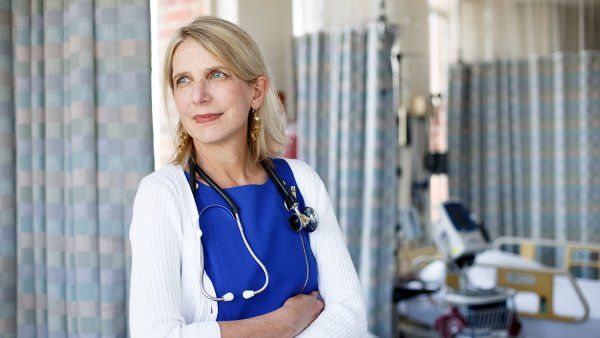University of California San Francisco
Give to UCSF-
-
Researchers Renewing Focus on AIDS Cure
-
Talk of 'Cure' at Historic AIDS Conference
-
SEARCH Study Shows 1-Year Drop in HIV Virus Levels in Rural Ugandan Parish After Community Health Campaign
Population-wide levels of HIV virus dropped substantially between 2011 and May 2012 in a rural part of southwestern Uganda, the site of two community health campaigns led by doctors at the University of California, San Francisco (UCSF), San Francisco General Hospital and Trauma Center (SFGH) and Makerere University in Kampala, Uganda.

-
AIDS Cure May Have Two Main Pathways: Experts
-
AIDS 2012 Draws Thousands to Nation's Capitol
<p><span>Bill and Hillary Clinton, Sharon Stone, Kathleen Sebelius, Bill Gates and Elton John are a few of the headliners to speak this week at AIDS 2012, the XIX International AIDS Conference, which runs through July 27 in Washington, D.C.</span></p>

-
'Berlin Patient' Timothy Brown Says He Is Still HIV-Free
-
The Female Face of HIV: "We Don't Have to Care for Ourselves"
-
Health Campaign Shows Universal HIV Testing Can Be Extended for Early Identification of Other Diseases
A clinical study in a remote region of southwest Uganda has demonstrated the feasibility of using a health campaign to rapidly test a community for HIV and simultaneously offer prevention and diagnosis for a variety of other diseases in rural and resource-poor settings of sub-Saharan Africa.

-
Warner Greene Authors HIV/AIDS Medicine Textbook for Developing World
Warner C. Greene, MD, a professor of medicine, microbiology and immunology at UCSFwho directs virology and immunology research at the UCSF-affiliated Gladstone Institutes, has joined with other global AIDS experts to release a locally affordable version of the world’s leading AIDS medical textbook.

-
Begin HIV Treatment Sooner, Not Later, Experts Say
-
UCSF/SFGH Researchers Call for Change in New FDA Recommendation on HIV and TB Drug Doses
In January 2012, the U.S. Food and Drug Administration (FDA) issued new guidelines on dosing of an HIV medication used to treat people infected with both HIV and tuberculosis (TB) because of a potential interaction between two of the main drugs used to treat each disease.

-
Scientists Make Curing HIV a Priority
-
HIV Specialists, Advocates Urge International Action at "Turning Point" in AIDS Fight
-
Hair Samples from Infants Show Exposure to Anti-HIV Drugs in the Womb and During Breast-feeding
Researchers from the University of California, San Francisco (UCSF) and Makerere University in Uganda have used hair and blood samples from three-month old infants born to HIV-positive mothers to measure the uninfected babies’ exposure — both in the womb and from breast-feeding — to antiretroviral medications their mothers were taking. The results, they said, are surprising.

-
Vanity Fair Nominates: Dr. Diane Havlir
-
Scientists Dare to Use the C-Word -- Cure -- As AIDS Meeting Sets to Open in Washington
-
Experts Outline Steps Towards an AIDS-free Generation
<p>A perspective published in the <em>New England Journal of Medicine</em> this week by professors at UCSF and the Johns Hopkins University asserts that it is now possible to begin to end the AIDS epidemic by widely and strategically applying existing tools.</p>

-
AIDS Conference Returns to U.S. For First Time Since 1990
-
AIDS 2012 Conference Co-Chair Diane Havlir Talks About What it Takes to Turn Tide on Disease

-
AIDS Summit Returns to US After 22 Years
-
AIDS Specialists Release 'Road-map' for HIV Cure
-
HIV/AIDS Prevention with Truvada: How Pregnant Women and Others May Benefit
<p>The AIDS drug Truvada, approved this week for prevention of HIV infection in uninfected people at high risk, may benefit many uninfected women whose male partners have HIV, including pregnant women, who may be at higher risk.</p>

-
AIDS Cure Is Back on Agenda
-
San Francisco AIDS Walk Raises Money and Hope
<p>The year 1982 was pivotal for Paul Volberding, MD. In the early days of the AIDS crisis, he was a talented research fellow who was getting ready to help launch San Francisco General Hospital & Trauma Center’s Ward 86, which would become the world’s first HIV/AIDS outpatient clinic. It opened its doors the following year.</p>

-
HIV Breakthroughs Boost Researchers' Optimism
-
The AIDS Epidemic: Beginning of the End?
-
The Beginning of the End of AIDS?
-
FDA Approves Truvada as HIV Preventive
-
UCSF Leaders Play Key Role in "DC Declaration" to End Global AIDS Epidemic
<p>A declaration calling for global support to end the AIDS epidemic was announced on July 10 by the International AIDS Society, with key support from the University of California, San Francisco (UCSF).</p>
